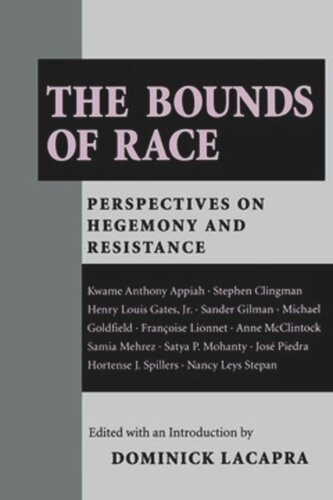

Most ebook files are in PDF format, so you can easily read them using various software such as Foxit Reader or directly on the Google Chrome browser.
Some ebook files are released by publishers in other formats such as .awz, .mobi, .epub, .fb2, etc. You may need to install specific software to read these formats on mobile/PC, such as Calibre.
Please read the tutorial at this link: https://ebookbell.com/faq
We offer FREE conversion to the popular formats you request; however, this may take some time. Therefore, right after payment, please email us, and we will try to provide the service as quickly as possible.
For some exceptional file formats or broken links (if any), please refrain from opening any disputes. Instead, email us first, and we will try to assist within a maximum of 6 hours.
EbookBell Team

5.0
110 reviewsThe concept of race is central to one of the most powerful ideological formations in history, Dominick LaCapra argues in his introduction to this volume, and understanding the effects of that ideology and its intricate relations with issues of class and gender is one of the most pressing challenges to contemporary modes of thought. The eleven essays comprising The Bounds of Race confront this challenge with insight, rigor, and imagination.
The authors take on questions of language, genre, and politics with reference to African-American, Anglo-American, African, South African, Francophone North African, British, and Afro-Hispanic texts. Individual chapters discuss writings from an array of genres including homily, autobiography, the novel, children's literature, and political and scientific discourse. Taken together, the essays argue persuasively that the existing canon must be expanded, that the protocols of interpretation must be transformed to make a prominent place for such issues as race, and that the problem of interpretation cannot be posed in the absence of theoretically informed modes of historical investigation.
The Bounds of Race provides a subtle analysis of the variable role of racial ideologies and traces the interplay between hegemonic constraints and the strategies of resistance to them.